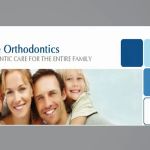Oral Hygiene: Tips and Products for Maintaining Healthy Teeth and Gums
- 1. The Importance of Oral Hygiene
- 2. Common Oral Hygiene Practices
- 3. How to Maintain Good Oral Hygiene
- 4. Products That Support Oral Hygiene
- 5. Common Misconceptions About Oral Hygiene
1. The Importance of Oral Hygiene
Oral hygiene is essential not only for maintaining fresh breath and a bright smile but also for ensuring overall health. Poor oral hygiene can lead to a range of issues, such as tooth decay, gum disease, and even heart disease. Regular brushing, flossing, and professional dental check-ups are key to keeping your teeth and gums healthy. In fact, studies have shown that people with poor oral hygiene are more likely to suffer from health problems that extend beyond their mouths. A healthy mouth is the first step toward a healthier body.
2. Common Oral Hygiene Practices
The most common and effective oral hygiene practices include brushing your teeth at least twice a day with fluoride toothpaste, flossing daily to remove food particles and plaque from between your teeth, and using mouthwash to rinse away bacteria. Additionally, regular visits to the dentist for cleanings and check-ups are crucial in identifying potential issues before they become serious. Many people also incorporate tongue cleaning into their routine to further reduce bacteria and improve overall oral health.
3. How to Maintain Good Oral Hygiene
Maintaining good oral hygiene involves more than just brushing and flossing. It’s important to follow a consistent routine and make healthy lifestyle choices. For example, limiting sugary snacks and drinks can help prevent cavities and gum disease. Additionally, drinking plenty of water throughout the day helps wash away food particles and bacteria, keeping your mouth clean. If you’re a smoker, quitting smoking can significantly reduce your risk of gum disease and oral cancer. Staying hydrated, eating a balanced diet, and avoiding harmful habits are all part of the equation for excellent oral hygiene.
4. Products That Support Oral Hygiene
Choosing the right products is vital in supporting your oral hygiene efforts. High-quality toothpaste with fluoride, such as Sensodyne for sensitive teeth or Colgate Total for overall protection, is a good place to start. Electric toothbrushes, like the Philips Sonicare or Oral-B Pro, provide a deeper clean compared to manual brushing. Additionally, mouthwashes like Listerine or Therabreath can help combat bacteria and keep your mouth fresh. Flossing tools such as water flossers or traditional dental floss are also essential in preventing plaque buildup between your teeth.
If you're looking for some trusted products, Dentistry Toothtruth offers a selection of high-quality oral hygiene products that can help elevate your dental care routine and provide long-lasting benefits for your teeth and gums.
5. Common Misconceptions About Oral Hygiene
There are several misconceptions surrounding oral hygiene that can lead to ineffective practices. One common myth is that brushing harder will clean your teeth better. In fact, brushing too hard can damage your gums and tooth enamel. Another misconception is that mouthwash can replace brushing and flossing. While mouthwash is a great addition to your oral care routine, it’s not a substitute for proper brushing and flossing. Finally, many people believe that if their teeth don’t hurt, they don’t need to see a dentist regularly. This is false — many dental problems, such as cavities and gum disease, can develop without noticeable symptoms, which is why regular check-ups are essential.







 Western Dental & Orthdontics Kids4.0 (394 review)
Western Dental & Orthdontics Kids4.0 (394 review) Dr. Manas Chug, DDS0.0 (0 review)
Dr. Manas Chug, DDS0.0 (0 review) Sahara Dental Center part Brident Dental & Orthodontics4.0 (788 review)
Sahara Dental Center part Brident Dental & Orthodontics4.0 (788 review) Aspen Dental - Lees Summit, MO4.0 (592 review)
Aspen Dental - Lees Summit, MO4.0 (592 review) Tri-County Dental Care Periodontics4.0 (79 review)
Tri-County Dental Care Periodontics4.0 (79 review) George Orthodontics4.0 (55 review)
George Orthodontics4.0 (55 review) The Importance of Oral Health Education During Pregnancy for a Healthy Pregnancy
The Importance of Oral Health Education During Pregnancy for a Healthy Pregnancy Best Tips for Brushing Your Teeth Properly for Healthy Gums: Essential Techniques for Oral Health
Best Tips for Brushing Your Teeth Properly for Healthy Gums: Essential Techniques for Oral Health Why Skipping Dental Checkups Can Lead to Bigger Oral Health Problems
Why Skipping Dental Checkups Can Lead to Bigger Oral Health Problems Advantages of Porcelain Dental Restorations
Advantages of Porcelain Dental Restorations How Can Diabetes Cause Tooth and Gum Problems? Preventing and Managing Oral Health Issues
How Can Diabetes Cause Tooth and Gum Problems? Preventing and Managing Oral Health Issues Healthy Habits for Promoting Good Oral Health and Hygiene: Tips for a Healthy Smile
Healthy Habits for Promoting Good Oral Health and Hygiene: Tips for a Healthy Smile